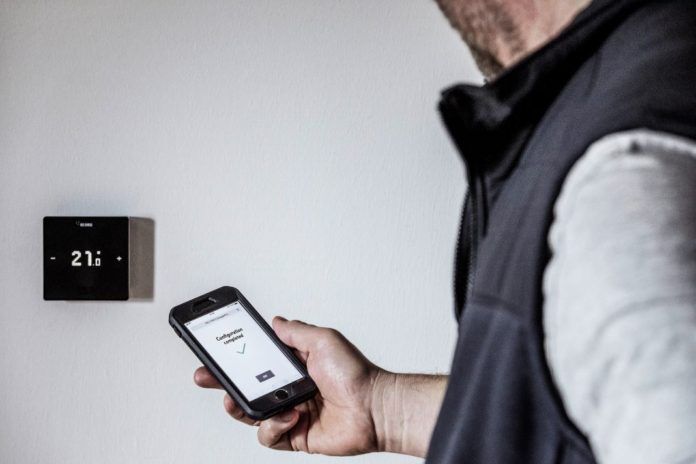
Contractors must be prepared for the growing popularity of smart control technology in residential and commercial building heating systems, according to ‘Warming The Next Generation’.
This new downloadable guide from REHAU explains how with space heating methods continuing to change and develop as efficiency and sustainability becomes an increasing priority, smart controls play a key role in this shifting landscape.
Specifically, it explores the use of underfloor heating (UFH), and its flexibility in commercial and residential properties when combined with such smart technology.
The guide explores trends in modern space heating requirements in multiple environments, including co-working spaces and home offices. It goes on to outline the growth of smart controls within the heating and energy markets and offers practical advice for developers and contractors looking to implement smart control and underfloor heating technology into their projects.
“We are moving towards a smart future and the role of technology in our everyday lives is increasing exponentially,” says Franz Huelle, head of technical at REHAU Building Solutions. “With guides such as Warming The Next Generation, we aim to raise awareness of this ongoing trend, the factors behind it, and what it means for building professionals. Equipped with clear, concise information about the future of UFH and smart controls, contractors and developers can ensure they are best placed to react to this growing demand for greater levels of modular control within residential and commercial buildings.”
Referencing the introduction of 5G and the ever-growing smart technology market, the guide goes on to highlight the importance of keeping abreast of the latest smart innovations as the construction sector moves toward a connected future. Using REHAU’s own NEA Smart 2.0 UFH smart control as an example, it explores how internet connectivity, machine learning and geofencing technology can optimise space heating, simplify installation and maintenance, and give any building heating system flexibility and adaptability long into the future.
Franz adds: “Alongside government bodies and contractors, suppliers have a major role to play in ensuring the country’s building stock is sustainable and efficient, and this guide is part of our commitment to achieving this. We want to show construction professionals that, regardless of their project’s size or complexity, expert advice and comprehensive, flexible solutions that improve overall sustainability are available.”
For more information and to download Warming the Next Generation, visit: www.rehau.uk/smartguide
